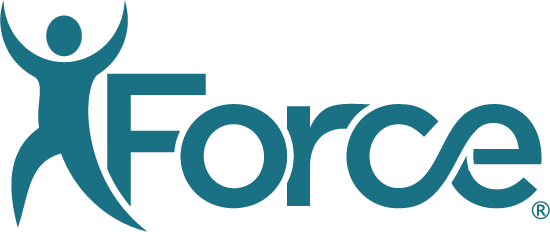As virtual care grew rapidly last year and came to the forefront as a validated modality of care, the importance of interoperability in healthcare as the key to program success, in turn, grew tenfold. At its core, interoperability is “the ability of healthcare information systems to work together within and across organizational boundaries in order to advance the effective delivery of healthcare for individuals and communities (HIMSS).”
With patients choosing hospitals for their quality of care and the virtual experience, it’s imperative that organizations be prepared to steward their patients within and across the different healthcare technologies they employ; those organizations will ultimately win in the market against others with siloed data and patient engagement strategies.
Importance of interoperability and data integrations
Force has long recognized the importance of interoperability and integrations in order to share patient data, like PROMs, between EMRs and the Force platform. Since 2016, we’ve partnered with Redox to make possible this critical data-sharing to and from Force and our clients’ EMRs. Redox is the industry leader in the development and distribution of healthcare software solutions, with a full-service integration platform to securely and efficiently exchange healthcare data via the existing, approved data exchange transfer mechanisms available by EMRs.
These insights come from George McLaughlin (Marketing, Redox) and a podcast between Niko Skievaski (President, Redox) and Bronwyn Spira (CEO, Force). Quotes have been edited slightly for style.
How interoperability addresses healthcare’s challenges
One of the biggest challenges facing healthcare organizations is their reliance on their EMR to solve problems. Due to the size of investment in EMR software, many of these organizations believe that they can only make use of new solutions from their existing vendor.
The reality is that the marketplace of third-party solutions – offering everything from telehealth and remote patient monitoring, to patient-reported outcomes and engagement platforms – has never been greater. With interoperability no longer a fear, these organizations can select what is best for their organization’s strategic goals, instead of limiting themselves to only what is offered by the EMR vendor.
Why hospitals should prioritize integration to win market share in 2021
- Integration accelerates payment. Value-based care models rely on outcomes reporting. Streamlining this process to remove unnecessary steps and accelerate reporting has a huge impact on reimbursement timelines.
- Integration improves the provider experience. Smart integrations make health information exchanges available at the point of care in an easily consumable and decipherable way in real time.
- Integration improves the patient experience. Accelerate administrative tasks and keep patients feeling educated and on track with meaningfully integrated platforms.
Why Force’s partnership with Redox is a key differentiator for our partners
- Redox dramatically reduces the amount of work required by IT teams to integrate. Healthcare products leverage a modern API to execute, and organizations execute a single implementation that can be used to integrate with any downstream system.
- Redox’s security is best in class. Redox’s platform is HITRUST certified, and their security program has been reviewed and approved by 1,000+ provider organizations.
- Redox is vendor-agnostic and can exchange health data across all relevant systems. They go beyond traditional EMR integrations to work with HIEs, registries, and trusted networks. Wherever health data is stored and used, Redox facilitates secure integration.
As healthcare makes a huge shift-towards value-based patient care, data collection tools is more important to leverage than ever. By dramatically improving patient experience and collecting more clinical data points with interoperability, organizations have the opportunity to earn Center of Excellence status, which has huge advantages to deliver affordable care, while opportunity with the same number of care team members. Leveraging a data collection platform is necessary for true program success.
“Force is such a great example of how digital health can make an impact, first collecting patient-reported outcomes; asynchronous communication and telehealth functionality; and now taking advantage of the data assets they’ve created to drive tremendous research. And, above all of that, using AI insights to drive, customized data-driven care plans.” Niko Skievaski, Co-founder and President, Redox



